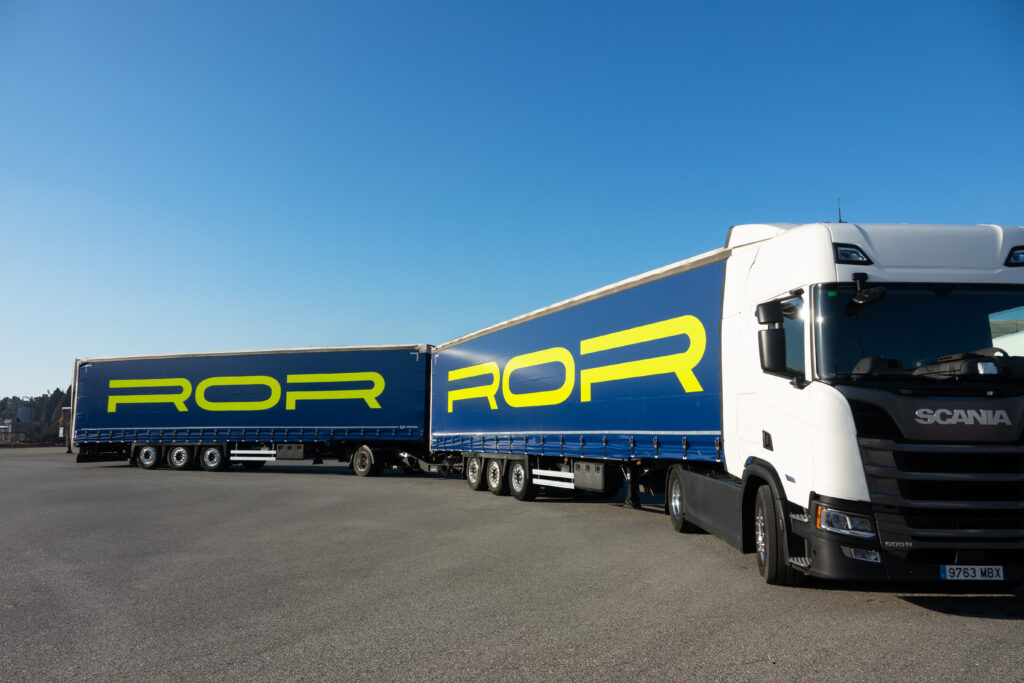ROR moves forward with transport decarbonization through HVO biofuel and specialized fleet

ROR has more than 20 special vehicles, combining Megatrailer and Duotrailer units. The company plans to save a total of 4,500 tons of CO₂ in 2025 thanks to refueling with HVO biofuel.
Barcelona, January 16, 2025 – As part of its corporate sustainability strategy, ROR, a logistics operator specialized in road transport for key sectors such as retail, is implementing measures aimed at significantly reducing its carbon footprint. Among the most notable are the use of HVO (Hydrotreated Vegetable Oil) biofuel and the incorporation of special vehicles like the EMS – 70 (Duotrailer) and EMS – 60 (Megatrailer).
The company expects that these practices will result in a total savings of 4,500 tons of CO₂ in 2025, through the estimated consumption of 1,872,000 liters of HVO across more than 4,680,000 kilometers driven by its sustainable fleet. Currently, the company operates over 20 units of special vehicles, a strategic combination of megatrailers and duotrailers that enhances route efficiency and reduces the number of trips required.
This initiative will lead to a reduction of approximately 90% in pollutant emissions associated with road transport in 2025. To put this into perspective, this emissions savings is equivalent to the annual absorption capacity of a forest of over 166.000 mature trees or avoiding the emissions generated by more than 400 vehicles operating for a full year.
These outcomes reinforce ROR’s focus on sustainable logistics, aligned with European goals for road transport decarbonization. They also reflect the company’s commitment to its customers, who increasingly demand environmentally responsible transport solutions.
Sustainability is no longer an option—it is a responsibility. At ROR, we continue to drive innovation and efficiency in freight transport, betting on alternative fuels and special equipment that not only optimize operations, but also protect the planet.



